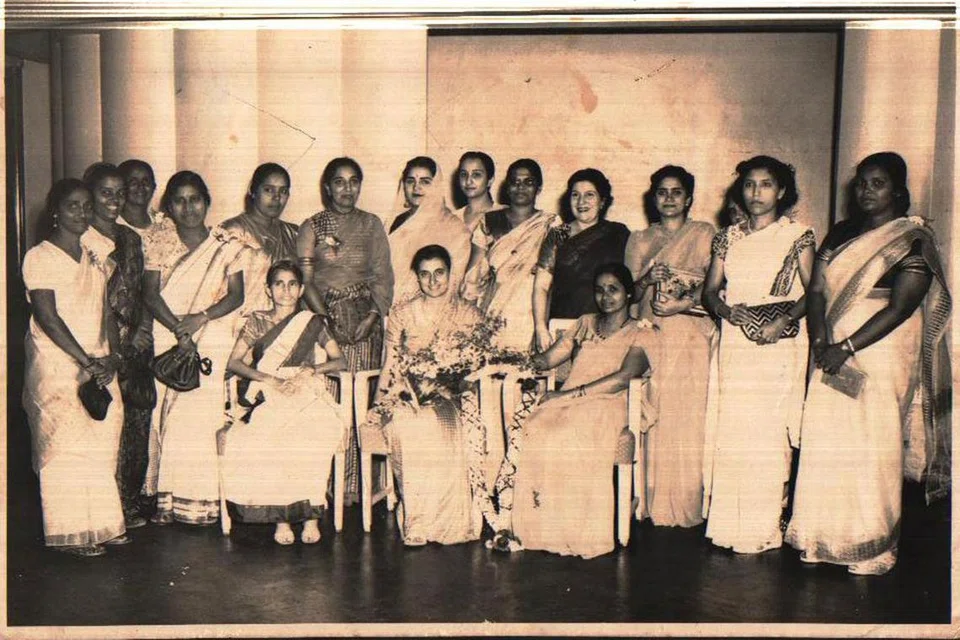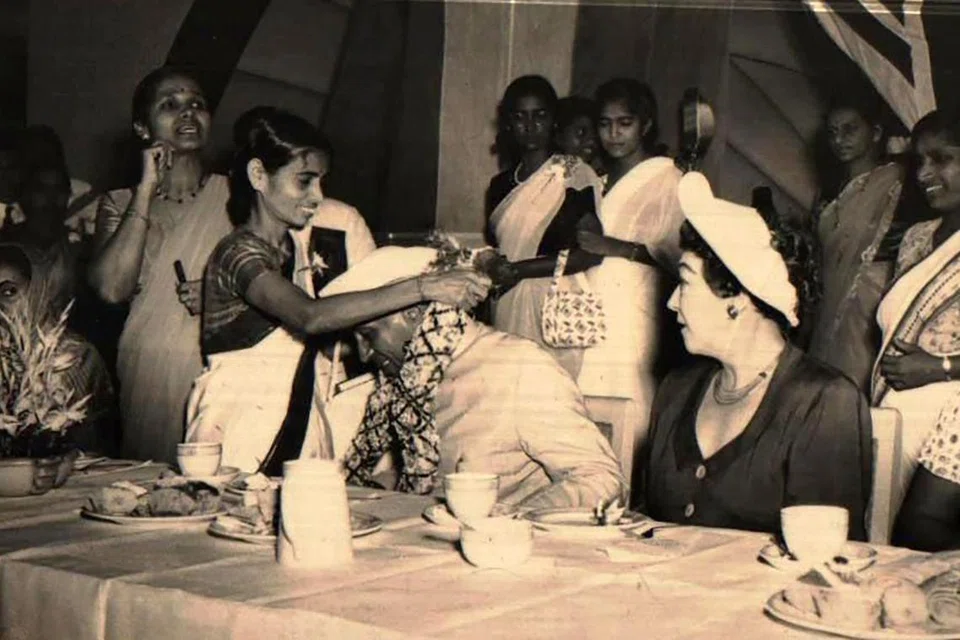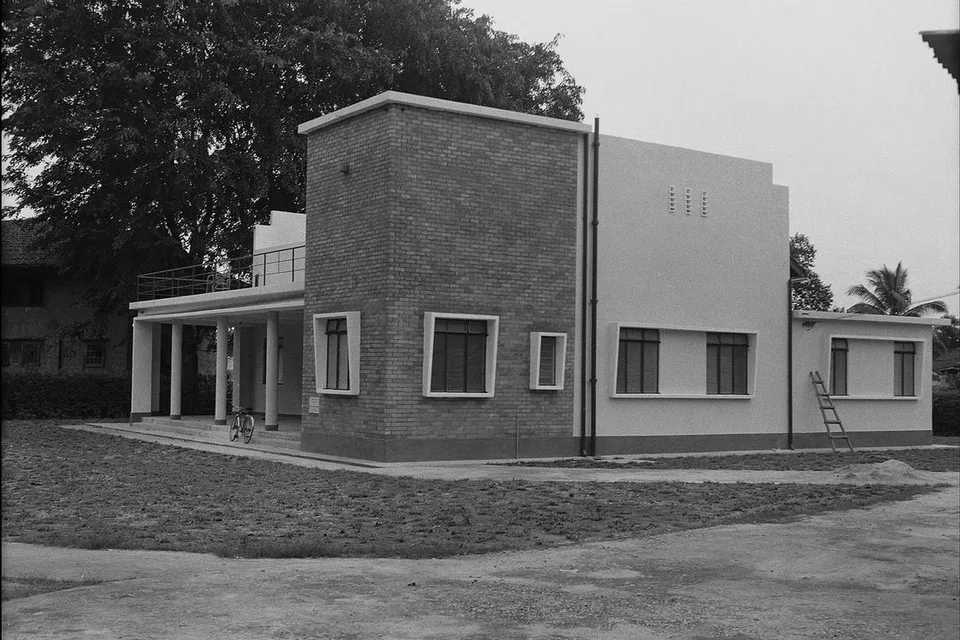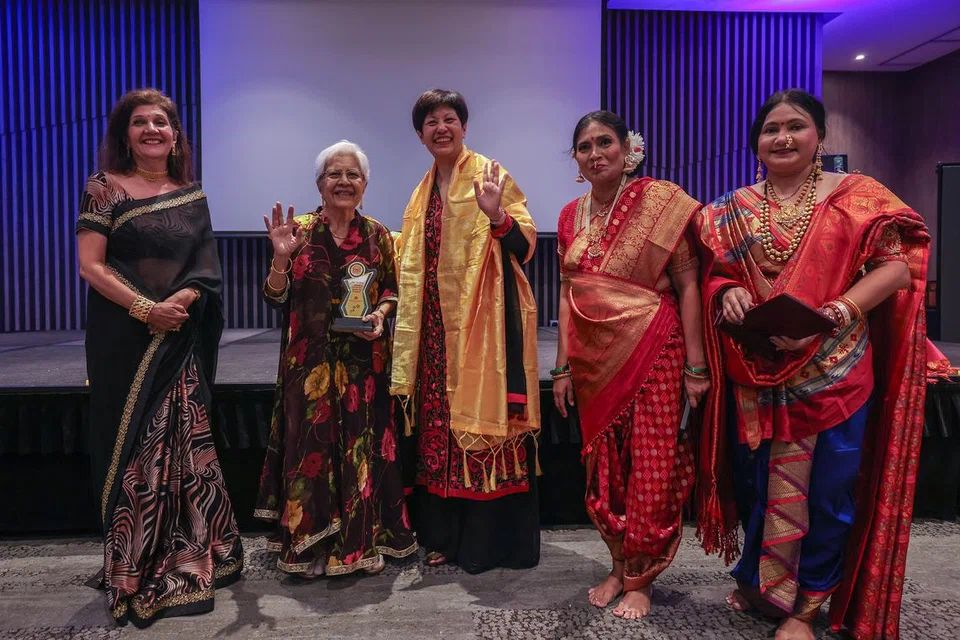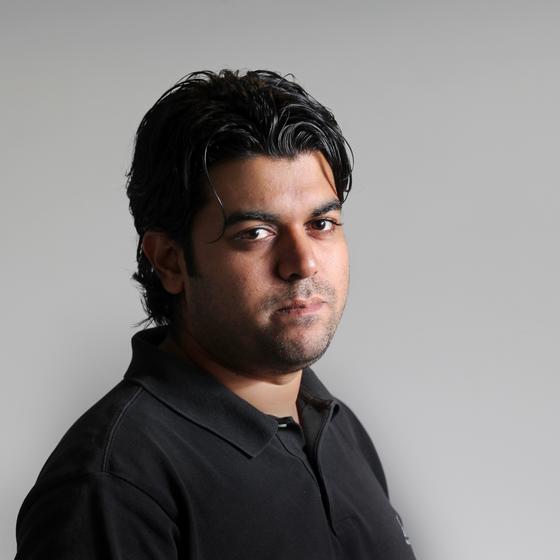Before entering a ground-floor ballroom at the Village Hotel in Sentosa last weekend, one might be forgiven for thinking that the festivities at hand had something to do with United States presidential candidate Kamala Harris, who lost the elections just days before.
The Kamala Club, however, is an organisation that precedes Ms Harris – and indeed most people alive today.
The club’s history goes as far back as 1930, when many Indians came to Singapore in search of a better life. And while the men were at work, their wives would meet for tea and get-together sessions in the afternoons.
This led to the formation of two women’s groups – the Lotus Club and the Ladies Union. The Lotus Club was launched in 1930 under the auspices of the Young Women’s Christian Association, with the objective of bringing together women from Indian and Ceylonese communities in recreation and friendship. The Ladies’ Union, on the other hand, was established in 1931 as an independent organisation run entirely by Indian and Ceylonese ladies.
The aim of the groups was the same – to bring women out of their traditional roles at home and give them an avenue to socialise, learn, showcase their talents and give back to society through various fund-raising efforts.
In 1950 the two groups merged to form the Kamala Club.
Mrs Sushiela Nair was only 20 when she joined the Kamala Club in 1957. She was the only local-born member at that time.
“I had just gotten married at that time and women had nothing much to do in those days. The older women told me ‘Come Mrs Nair, come and join us’, that was how I joined them,” said Mrs Nair, now 87, in a previous interview with tabla!
She was one of around 150 people present at the Village hotel during the club’s Deepavali Nite celebrations last Saturday. And she was also one of the few given a lifetime acknowledgement award for her longstanding membership.
At the event, graced by Minister in the Prime Minister’s Office Indranee Rajah, members performed dance numbers of different Indian genres, and in a special segment, brought the paintings of 19th century artist Raja Ravi Varma alive by walking the ramp in parallel with his artwork as a backdrop.
In line with the club’s ethos of charity work, gifts were collected towards Project Smile, a local charity that provides assistance to women from disadvantaged backgrounds.
On how the club was formed, club president Padmaja Yerramsetty said it happened when India’s first prime minister Jawaharlal Nehru visited Singapore in 1950. It was his first state visit here.
During his visit, the two women’s groups organised a tea reception for him and he asked them: “Why do you need two separate groups of women? Why don’t you combine them?”, recounted Ms Padmaja.
They accepted his suggestion and named the combined group Kamala Club, after Nehru’s wife Kamala.
A clubhouse at Moulmein Road was built through donations and fund raising and officially opened in 1957. It was the first clubhouse in Singapore built for women and built by a woman contractor.
But it was acquired by the Government in 1985 for road development. The club got $32,000 as compensation, which was donated to the Singapore Indian Education Trust, the then Singapore National University and various charities.
Since then, meetings have been held at members’ houses. But headquarters or not, the Kamala Club has continued to play a vital role in promoting women’s empowerment, cultural activities and community service.
“The club focuses a fair bit on community integration, and through our tie-up with the People’s Association (PA), we showcase our Indian culture to the other communities during various events,” said Ms Padmaja, an entrepreneur who moved to Singapore from Bangalore in 1997 and has been a Kamala Club member since 2013.
“During Racial Harmony Day and Children’s Day, for instance, we host activities like Rangoli and information booths about henna and mehndi.
“We’ve also collaborated with organisations like SINDA for goodie-bag distribution to the underprivileged, and for breast cancer awareness, we did the ‘Pink Ribbon Walk’, where members walked 5km in sarees.”
Aside from charity drives and PA-related activities, members meet monthly for Indian-themed dinners, yoga sessions and cooking workshops.
The club has some 120 members based in Singapore, said Ms Padmaja, who adds that the total is actually 300, “if you count overseas members who lived in Singapore but have since moved abroad”.
With the influx of Indian expats to Singapore, membership numbers have seen an uptick in recent years.
“Just this year alone, we’ve had 19 new members join us. There is a membership fee, but a lot of the proceeds go towards charity,” Ms Padmaja said.
“Our intention is always to raise awareness of the Kamala Club to all Indian women in Singapore. And we hope more will join us in giving back to the wider community.”
